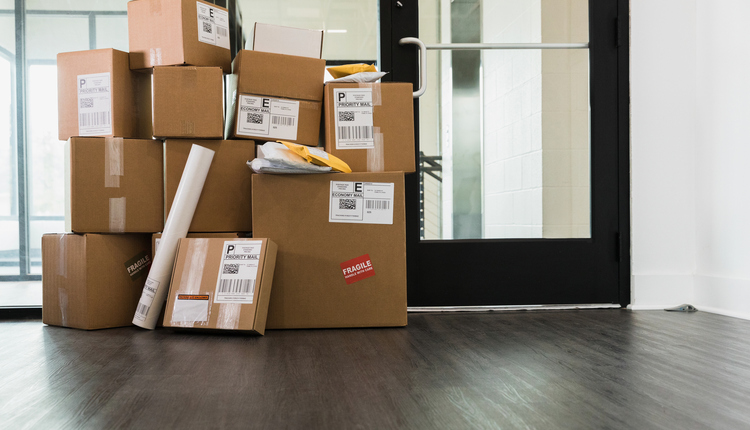| Editor�s Note: Dan Mullen is the president of AIM, the global trade association for automatic identification and mobility technologies. AIM members are providers and users of systems that capture, manage and integrate accurate data into larger information systems. As a not-for-profit industry organization, AIM�s mission is to stimulate the understanding and use of the technology by providing timely, unbiased and commercial-free information. Most of the articles about radio frequency identification (RFID) in both the mainstream and technical media almost always contain a statement along the lines of, �RFID is the replacement for barcodes.� This may well be true, but it�s true in the same way that the internal combustion engine replaced the horse as the primary means of transportation. In other words, it won�t happen all at once and it won�t happen everywhere at the same time. In fact, in some places, it may not happen at all. Admittedly, the RFID carton and pallet tagging mandates grabbed headlines and sent many companies scrambling to learn about RFID. Mandates from Wal-Mart, Target, Albertsons and the U.S. Department of Defense (DoD) as well as the European chains Metro and Tesco, are just the tip of the iceberg. And, when one takes into account that the DoD mandate covers all of its 43,000 suppliers, it�s a pretty large iceberg. Another clear indication that RFID is coming on strong � and will impact parcel shippers � was the announcement that UPS is gearing up to be RFID-capable to better serve customers with RFID tagging mandates or compliance needs. RFID does offer real advantages over barcodes in many shipping and receiving applications. It is a non-line-of-sight, non-contact technology that can be truly �automatic.� In other words, little or no employee action is required to face packages or read RFID labels as pallets are moved through a dock door or cartons move down a conveyor. Given these indications, one might assume that barcodes will quickly go the way of carbon paper receipts in the parcel industry. Real World Considerations The reality is, barcodes will be around for a number of years simply because not every customer will want (or be able to) read RFID tags everywhere in the enterprise. Why is that? One reason is that RFID readers are still somewhat expensive. Also, many companies have a big investment in barcode technology that they�re not willing to throw away just yet. But the real reason many locations will continue to want barcodes is a bit more practical. One of the main advantages to RFID is that it allows �automatic� identification of cartons and pallets without the need for an employee to take any action. In fact, cost benefits accrue quickly when an employee can be removed from the operation completely. There will, however, continue to be many instances where an employee will have to be involved in packing, moving or stocking goods. In these situations, the benefits of RFID quickly diminish. For close range operations, barcodes may still be the best solution. If an employee is required for the operation, cost savings may be minimal with RFID. Another problem RFID has in some applications is also one of its real benefits. Because multiple tags can be read when they�re packed closely together, singling out one parcel on a pallet isn�t currently possible with RFID. While RFID makes it far easier to determine that the carton you want is in a particular cart or on a specific pallet, verifying that you have the right carton is better served by barcodes as well as human readable text. This situation won�t last forever since RFID reader manufacturers are already developing ways to limit the strength of the reading field for close-in work as well as ways to focus the signal to provide a more �laser-like� reading window. Nonetheless, for these kinds of applications, barcodes are still better for this type of application. Privacy Concerns Many consumer privacy groups have expressed concerns about having all their purchases tracked after they leave the store. While most of these fears are unfounded, they do present particular challenges for parcel shippers. Of particular concern are products where the shipping unit is also the sale unit (such as bags or cases of goods or large items). Compliance with RFID tagging mandates means that the RFID tag will leave the store with customers. One way to deal with this problem is to remove the RFID tag when products are stocked. In this scenario, a barcode will still be necessary for scanning at check-out. In fact, most check-outs will continue to use barcode scanners for the foreseeable future. While retailers can develop various ways to �kill� tags as they leave the checkout or provide removable tags that customers can dispose of before leaving the store, the same scenario doesn�t necessarily work for home delivery. While a removable RFID tag could be used to address privacy concerns, the additional labor might offset potential operational benefits � at least in the near term. FedEx has been reluctant to move aggressively toward RFID tagging because of consumer privacy concerns, and it is unlikely that any other parcel carrier will implement internal RFID parcel tagging/tracking any time soon for the same reason. Therefore, barcodes (or matrix symbols such as MaxiCode) will continue to be the technology of choice for consumer parcel tracking. Not Gone After All It�s important to realize that, even with all the hype, nowhere do you see any suggestion from retailers or the DoD that barcodes should be eliminated from the shipping label. In fact, Target has indicated that, while it expects to have 100% RFID tagging from all its suppliers by 2007, the RFID tag would be in addition to barcodes on the shipping label. So, will RFID signal the end of barcodes? An appropriate response to that question would be that of the famous American author, Mark Twain, when newspapers erroneously printed his obituary. �The reports of my death,� he said, �have been greatly exaggerated.� Dan Mullen is the president of AIM Global. AIM�s RFID Web site, www.rfid.org, has current news and information on RFID. AIM also publishes �RFID Connections,� a free e-newsletter on RFID issues. Visit the Web site to sign up for your free subscription. |





